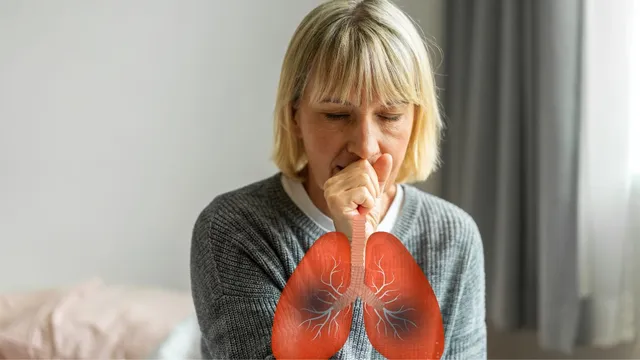- By Iram Hussain
- Mon, 09 Dec 2024 05:31 PM (IST)
- Source:JND
The relationship between air pollution and cancer is no longer a matter of debate. The International Agency for Research on Cancer (IARC) has already classified outdoor air pollution as a Group 1 carcinogen in 2013 thus solidifying its capability of causing cancer in humans. These infiltrating tiny particles into lung tissues have been known to cause progressive DNA damage and elevate the risk of lung cancer. In India, lung cancer remains the top cause of cancer deaths among men, with over 63,475 lives succumbing to the disease in 2021, which constitutes 8.1% of all cancer-related fatalities.
In a conversation with Jagran English, Bhavna Bansal Senior Consultant and HOD, Histopathology Oncquest Laboratories explained the danger of air pollution on the lungs and listed seven cancer signs that one shouldn't ignore.
Hidden Dangers Of Airborne Particles
Airborne particle also known as particulate matter comes in different types and sizes. Generally, they are invisible by the naked eye and have harmful elements like acids, chemicals and metals in their composition. Bigger particles irritate the throat and the respiratory tract but smaller particles (PM2.5) have more damaging effects. Such tiny particles enter without body defence in the deepest segments of the lungs, wherein irrecoverable damage is possible through time.
Once the particles are trapped inside the lungs, they can oppose or interfere with the process of normal cellular activity. They may cause damage through DNA mutation, interfering with cell division and the development of abnormal cells, hence producing an increased risk for lung cancer.
7 Cancer Signs You Shouldn't Ignore
Having awareness regarding the symptoms of lung cancer is very important for early detection. Here are seven signs that indicate immediate medical attention.
Chest And Bone Pain
Persistent chest discomfort or pain that radiates to the bones may indicate underlying issues, including cancer.
Coughing
A chronic cough, which worsens over time, is a common symptom of lung-related diseases, including cancer.
Loss Of Appetite
A sudden lack of interest in food can be an early warning sign, as cancer can affect the body’s metabolic processes.
Dizziness
Unexplained dizziness or episodes of fainting can occur due to cancer’s impact on oxygen levels in the blood.
Unexplained Weight Loss
Significant, unintended weight loss is often an indicator of an underlying health condition, including cancer.
Trouble Swallowing
Difficulty swallowing, also known as dysphagia, can signal the presence of a tumour obstructing the oesophagus.
Coughing Up Blood
Coughing up blood is one of the more alarming signs of lung cancer and requires immediate medical evaluation.
Diagnosis And Treatment
Early detection actually increases the likelihood that lung cancer will be successfully treated. Diagnosis typically starts with imaging tests, for instance, a chest X-ray or CT scan. The test is conducted to detect the lungs' abnormalities. Lung cancer treatment is largely symptom-based and depends on the type and stage of the disease. Its treatment may include surgery for tumour removal, chemotherapy, radiation treatment, immunotherapy, or targeted drug therapies.

